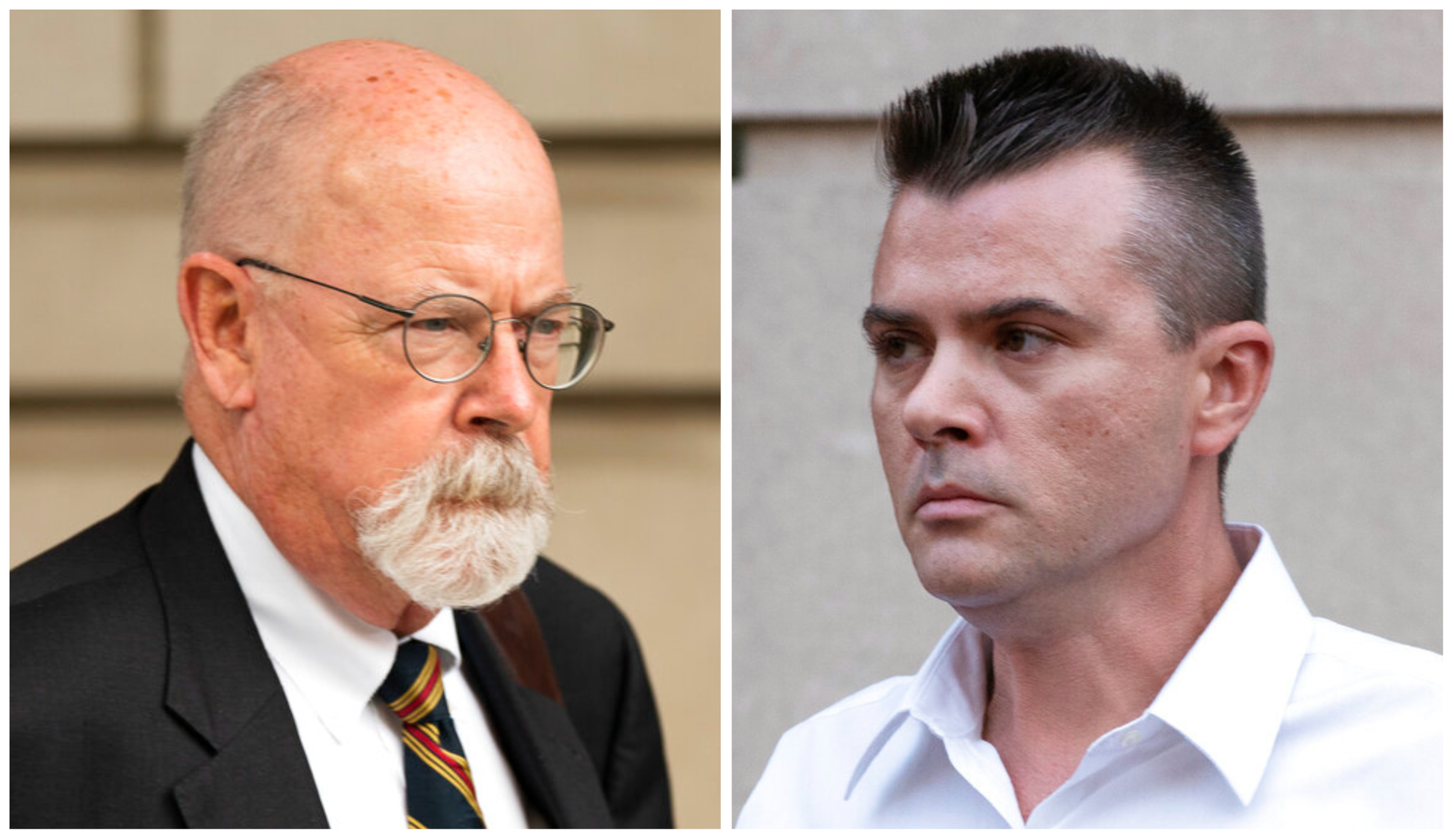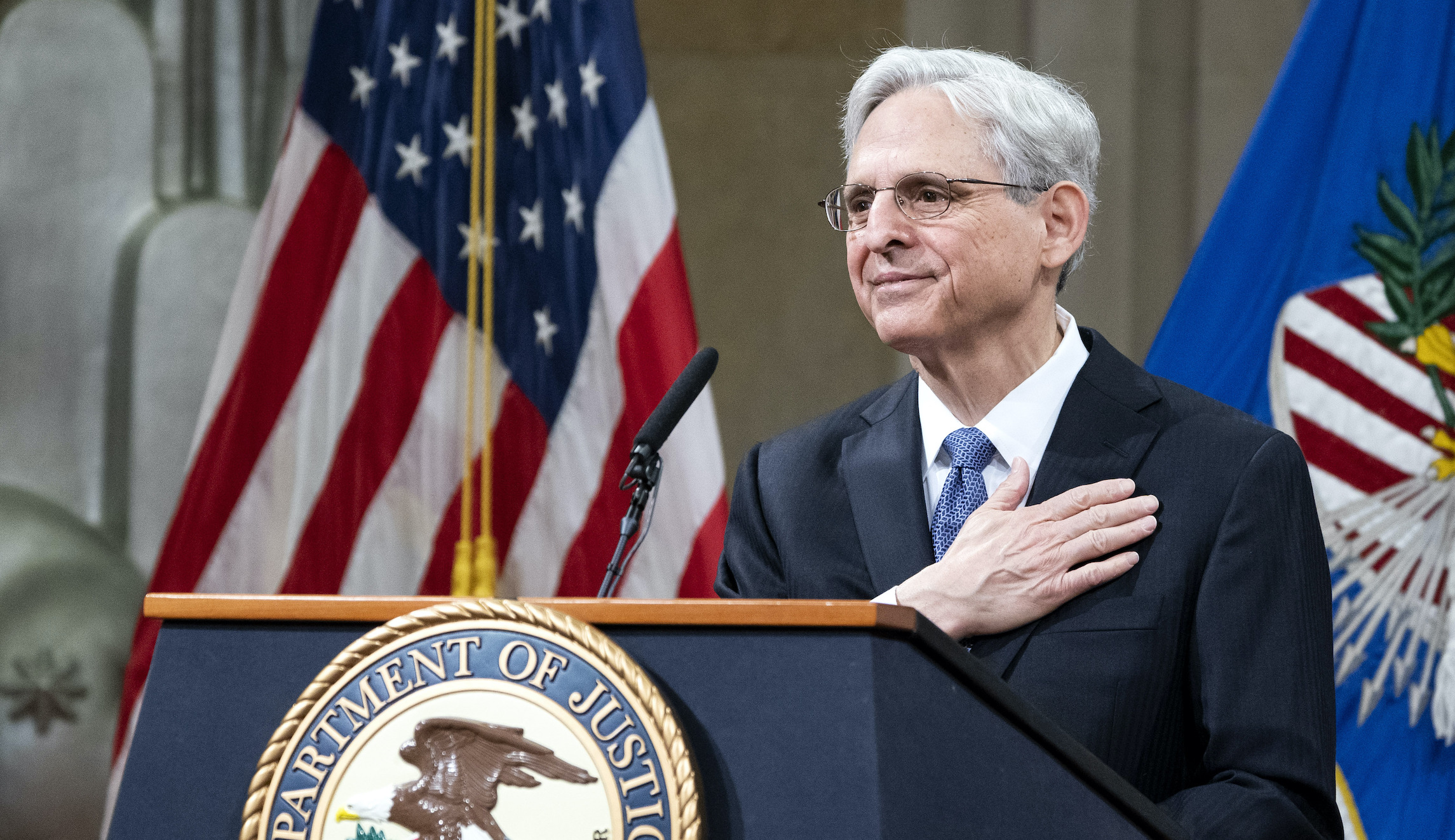Special counsel John Durham should not have the final say in his investigation seeking out misconduct in the FBI‘s Russia inquiry, says an Obama-era spokesman for the Justice Department.
Matthew Miller, who was director of the Justice Department’s public affairs office from 2009 to 2011, argued Attorney General Merrick Garland, or another top official at the agency, should review the final report Durham is reportedly expected to prepare by the end of the year before making a decision on releasing its findings to the public.
The challenge to Garland to take a “pause” followed a jury in Alexandria, Virginia, finding Russian national Igor Danchenko not guilty Tuesday on several false statements charges over allegations that the main source of British ex-spy Christopher Steele lied to the FBI about his sourcing for the now-discredited anti-Trump dossier. MSNBC host Alex Wagner asked Miller whether Durham’s endeavor is coming to an end.
‘DOWN THE TUBES’: SEAN SPICER RAGES AFTER JOHN DURHAM LOSES ANOTHER RUSSIAGATE CASE
“His cases are over. I think it’s clear that he’s not going to bring any more charges in this investigation, but one of the requirements for special counsels under the regulations is that they write a confidential report and submit it to the attorney general, and the attorney general then makes a decision whether to release that report to the public,” Miller said on Alex Wagner Tonight.
Miller made a comparison to special counsel Robert Mueller’s Russia investigation and then-Attorney General William Barr’s controversial rollout of his report in 2019.
“I think Merrick Garland will be under a lot of pressure from Republicans to release that report, but I have to say, this circumstance is very different from the Mueller investigation, where, obviously, the attorney general, Bill Barr, did release that report,” he said.
“It’s different because in that case, the subject of that investigation could not be charged, and so it was appropriate for the department to make its findings public, so Congress could decide whether to impeach and convict the then-sitting president,” Miller added. “That is not the case here, so to release a report in this instance — given what we know about the way that Durham has behaved, some of his inappropriate public statements during this investigation, the poor judgments he has made in bringing these charges — to release a report publicly and let him have the final word I think probably unfairly tarnish some people at the FBI that we know he holds ill will to based on some of the things he said in this most recent trial.”

Durham’s investigation began more than three years ago. Although the prosecutor has secured one conviction so far, the only other case he’s brought, against lawyer Michael Sussmann, ended in acquittal. While former President Donald Trump and his allies claim the businessman-turned-politician was unfairly targeted in a bid to undermine his campaign and presidency, Democrats and some legal observers claim the inquiry is meant to undercut Mueller’s special counsel investigation and inflict damage on Trump’s political foes.
Garland testified to the Senate last October that “with respect to the report, I would like as much as possible to be made public — I have to be concerned about Privacy Act concerns and classification, but other than that, the commitment is to provide a public report, yes.” Garland also vowed, “There will be no political or otherwise undue interference with the Durham investigation.”

Durham has not signaled publicly where he might take his investigation next, but Miller said, “I think the attorney general would be wise to take a pause before releasing that report, maybe let another senior career official at the Justice Department review it and decide whether John Durham really is the person that gets to have the final word on the Russian investigation.”
Wagner pressed Miller, asking how Garland could resist Republican pressure to release the report for the sake of “transparency.” Miller reasoned that the attorney will have less leeway if Republicans win control of a chamber of Congress and take power next year.
CLICK HERE TO READ MORE FROM THE WASHINGTON EXAMINER
“He can ignore the pressure if he wants to ignore it. What he wouldn’t be able to ignore is a subpoena from Congress. So if the House does change hands, and the Republicans control a committee, they will undoubtedly send a subpoena for this report, and he would eventually have to turn it over,” Miller said.
“But it does not have to be the last word. Lots of times in the past — there’s ample precedent for this — when reports like this have been written by the Justice Department, the leadership decides whether that actually reflects their view,” he added. “John Durham does not get to be the final arbiter of what the Justice Department believes, so it would be appropriate for Merrick Garland to either review it and come up with his conclusions or, maybe more appropriately, refer it to the senior career official as has been done in the past and let that individual review it and decide whether he believes the conclusions John Durham has drawn, conclusions which we know at least in two public cases have been rejected by juries, are the conclusions that the Justice Department in its considered wisdom actually agrees with and wants to let stand before the public.”

